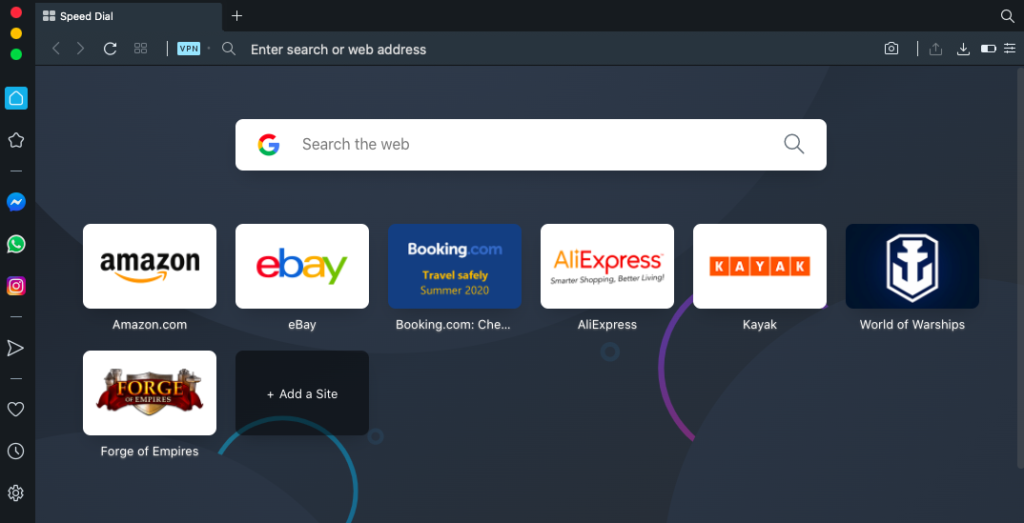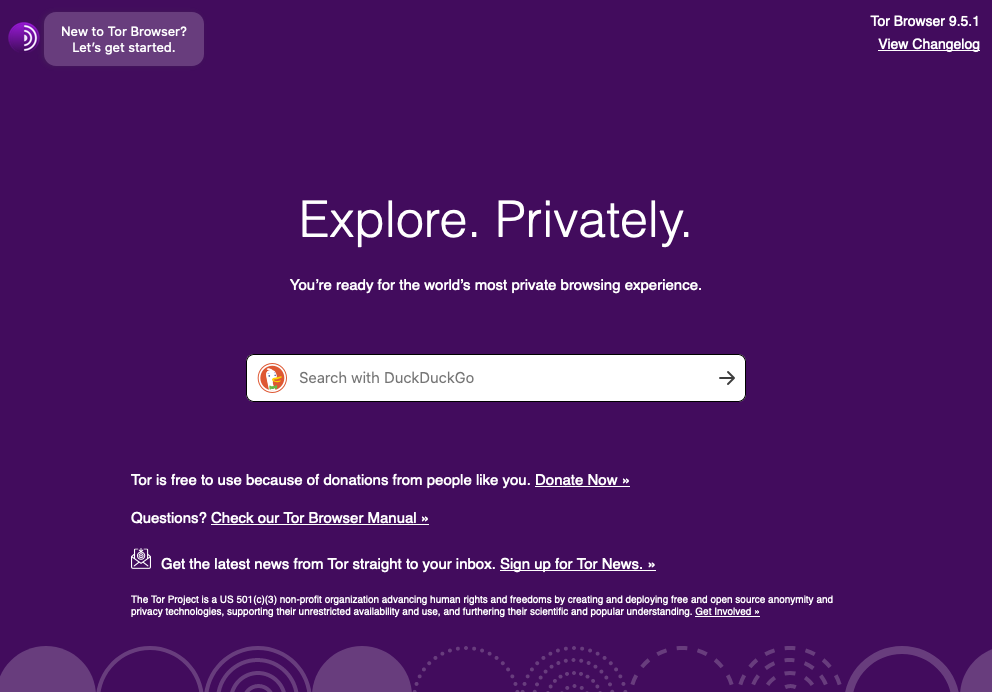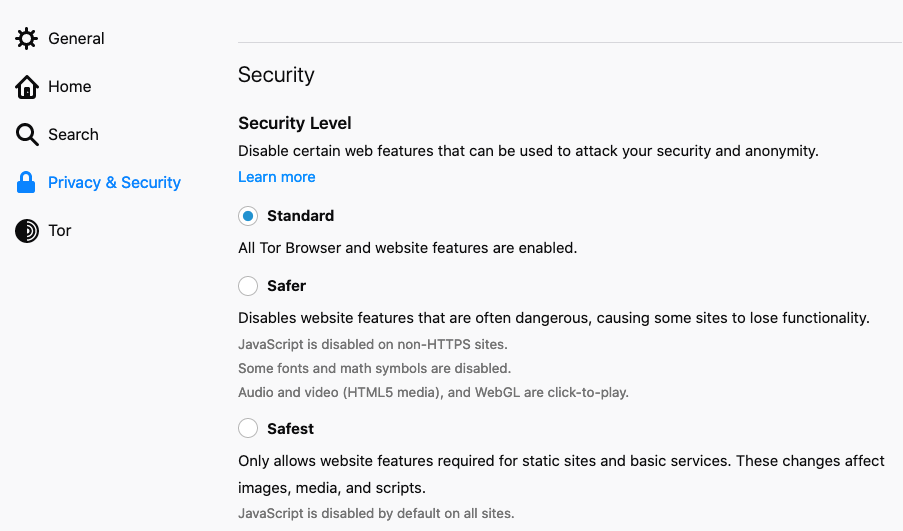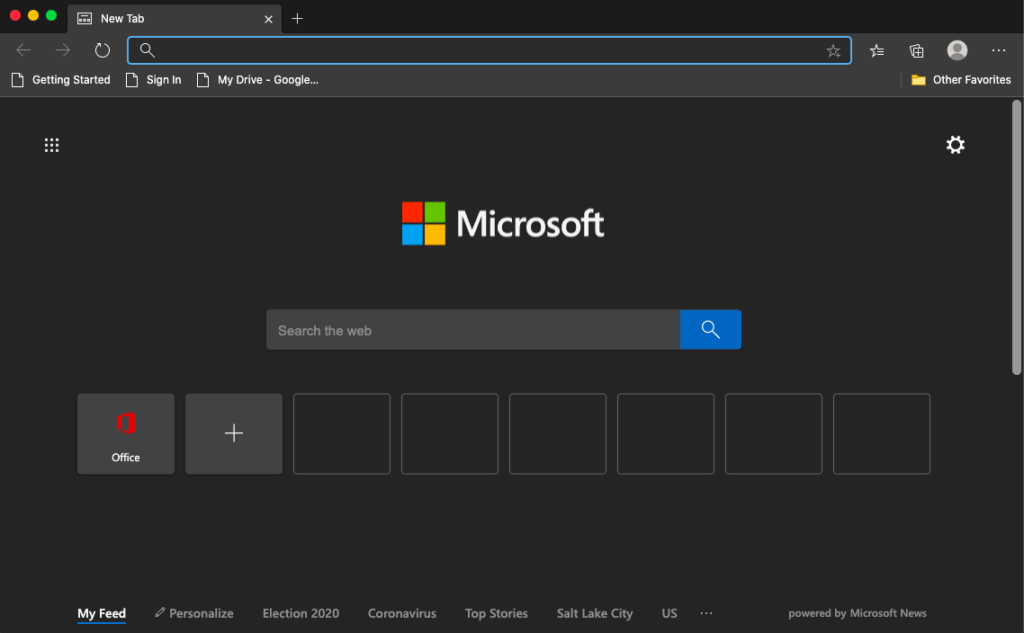Table of Contents
- Mozilla Firefox: For Safety with Simplicity
- Tor Browser: For Simplicity with Even Stronger Safety Features
- Google Chrome: For World-Renown User Simplicity
- Opera: Simplicity that Saves Resources and Blocks Ads
- Microsoft Edge: Less Safety, Minimalist Design
In 2020, seniors are more online than ever.
Although young people have higher rates of technology adoption, many seniors say they use various forms of technology at rates similar to people under 65.
Furthermore, seniors tend to have specific preferences for technology use, such as internet browsing. In a survey of 1,501 users, half of participants older than 45 preferred Internet Explorer, with the remainder of senior citizens preferred Firefox, Chrome, Safari, or Opera — in that order.
However, while internet explorer was once the most familiar browser and just came with a new computer, it has now changed significantly. And there are other browsers out there that offer other capabilities, such as enhanced privacy options and a more simplified user experience.
Overall, you have to decide how and why you browse the internet (e.g. for online banking, sending emails, shopping, etc.) and find a browser that matches the level of security and simplicity that suits you.
We recommend downloading a few browsers and trying them out to see which one suits you.
1. Mozilla Firefox: For Safety with Simplicity
Many people who use the internet default to using the browser that was already installed when their computer arrived. However, for many users, the simple design of Mozilla Firefox combined with its world-renown safety features make the browser worth a quick download.
Mozilla Firefox is known worldwide for protecting privacy while remaining user-friendly. In 2019, Germany’s cyber-security agency tested four browsers: Firefox, Chrome, IE, and Edge. Firefox was the only browser to pass all minimum mandatory safety requirements. The agency determined that not only does Firefox block insecure aspects of internet browsing, it also alerts users about threats in a clear way.
Within the Firefox Browser, the Privacy & Security Settings allow users to select privacy settings that are either standard, strict, or customized. The settings also allow users to block pop-up windows, hide their location, control camera and microphone access, and block dangerous content. And overall, the browser settings page has a very simple design but users who want additional control can go into advanced settings to customize their privacy.
Another worthwhile feature of Firefox is its “add-on” features. Add-ons are options you can add to your browser to customize it. For example, there is an add-on called Bitwarden that allows you to make secure and varied passwords for each login location, save those passwords safely, and then have them log you in across all your devices (e.g. your phone, computer, and iPad).
There is also an add-on that blocks annoying advertisements and one that blocks websites from tracking your internet browsing. Finally, there is also an add-on called Reader that identifies the main text in online articles, and presents it in a large, clear format similar to a printed page.
You can download Mozilla Firefox here.
2. Tor Browser: For Simplicity with Even Stronger Safety Features
While Firefox is a fairly safe option, Tor offers an even more secure internet browsing experience. While Firefox can block unwanted attackers or withhold your information, Tor allows you to browse the internet without anyone ever being able to trace who or where you are. When you use Tor, other websites can’t gather any information from you except that you are an internet user using Tor.
Additionally, Tor uses DuckDuckGo as a search engine that prioritizes user privacy. Although most people use Google, Google has made their fortune on user data, keeping detailed records of their users and changing search results based on who is using their search engine. DuckDuckGo, on the other hand, does not profile users and shows them all the same search results for a particular search term.
In addition to their safe search engine, Tor also blocks browser plugins can be manipulated to reveal your browsing identity, such as Flash, RealPlayer, and QuickTime. However, many internet browsers need these plugins to watch videos or interact with certain websites. So, Firefox is usually enough for them.
And like Firefox, Tor offers simple Security Settings that allow you to block elements that could be used to attack your computer. There are three standard options: standard, safer, and safest, as well as a box you can check to block deceptive content and dangerous software.
You can download Tor’s browser here. Tor can be difficult to configure, so call your tech support company if you need help setting it up.
3. Google Chrome: For World-Renown User Simplicity
Google Chrome is Google’s internet browser. According to StatCounter, 63.7 percent of all internet browsers across the globe use Chrome. While it shares much of its user data with Google, the browser is highly functional.
Chrome is highly popular for its speed, simplicity, and ability to share passwords and information across multiple devices and applications. Chrome allows you to, for example, use a Google email account to sync your browsing experience on an iPad, iPhone, and multiple computers.
So, if you are someone who uses multiple devices and doesn’t want to have to log in or transfer information all the time, you may want to consider Chrome.
Chrome is also popular because of its simple layout. The design is simple, the settings are straightforward, and the address bar acts doubles as a Google search engine.
Additionally, when you open the browser, it shows you thumbnails of your most frequently visited websites, so you can return to them easily. Additionally, the history and bookmarks tabs appear like websites to keep design consistent. And when Chrome needs to update, it does so by itself.
Amongst senior citizens, Chrome is also popular because it is the main application used in a Chromebook. Chromebooks are lightweight laptops that take a minimalistic approach to internet browsing. They are the kind of device you can pull out of the box and use immediately with very little setup.
They also prevent most downloading except through the Google App Store — which is very secure. So, for those who want to skip the hassle of configuring a regular laptop, a Chromebook allows seniors to begin searching the internet with very little hassle.
You can download Google Chrome here.
4. Opera: Simplicity that Saves Resources and Blocks Ads
If you are using speed dial or have a computer that tends to run slowly, you may want to opt for the Opera Browser. One of Opera’s primary focuses is to use less of your PC’s battery and resources, so it won’t slow down your computer.

One of the ways Opera speeds up your browsing is by automatically blocking ads. So instead of loading advertisements, your computer can focus on your web searching, shopping, emails, etc.
Regarding privacy, Opera also offers a built-in VPN for private browsing. A VPN is a way of allowing you to browse the internet without other websites tracking your footprints. This can prevent unwanted advertising and phishing as well as protect your identity online.
You can download Opera here.
5. Microsoft Edge: Less Safety, Minimalist Design
Microsoft Edge is Microsoft’s new browser — the replacement for Internet Explorer that used to come installed with every Microsoft desktop. The main improvements Microsoft made include adding more privacy features, simplifying the user experience of the browser, and increasing its speed. The browser’s security feature is called Microsoft Defender SmartScreen, and it prevents websites from trying to download viruses on your computer or scamming you.
However, Microsoft Edge itself does collect user data and is not exactly transparent about how it is used. Software engineer Aleksander Housen explains:
“Privacy is by far the greatest weakness of the new Edge. Although it’s not as bad as Chrome in this regard, it still leaves a whole lot to be desired. Microsoft’s privacy policy is a mess, as it’s often unclear what specific products are being talked about. There is no mention of selling personal data to advertisers, which leaves us with the impression that this is a practice that Microsoft engages in.”
Overall, many users over 45 once preferred Internet Explorer to other browsers because it was the most familiar. After all, the browser was released in 1995. It was familiar since it came already installed on most people’s computers.
And although Microsoft has now built-in ways of preventing the security breaches that afflicted Internet Explorer, they have totally changed the browser’s design and lost that former familiarity.
Because of these changes, we recommend users try out the new browser and see if they prefer its usability to other browsers. The browser does, for example, allow you to select a highly focused design setting for simplified use upon downloading.
You can download Microsoft Edge here.
A Final Word of Advice…
Overall, when choosing a browser, consider your priorities and what works for you. Consider writing out what your priorities are when browsing the internet. When do you use it? How often? For what purpose? These questions can help you determine the level of safety and functionality you will need in an internet browser. And as always, if you are experiencing any kind of user- or technical-related issues with your internet browser of choice, consider reaching out to HelpCloud Technicians for remote support.




